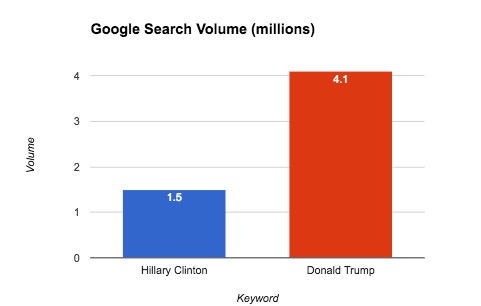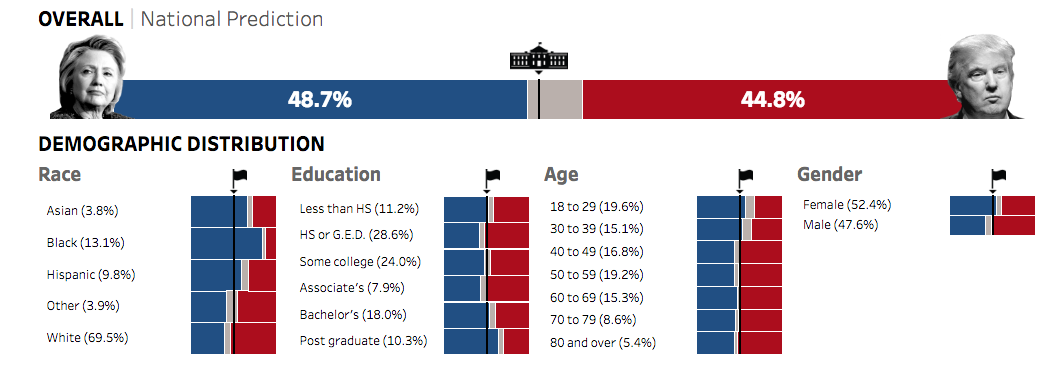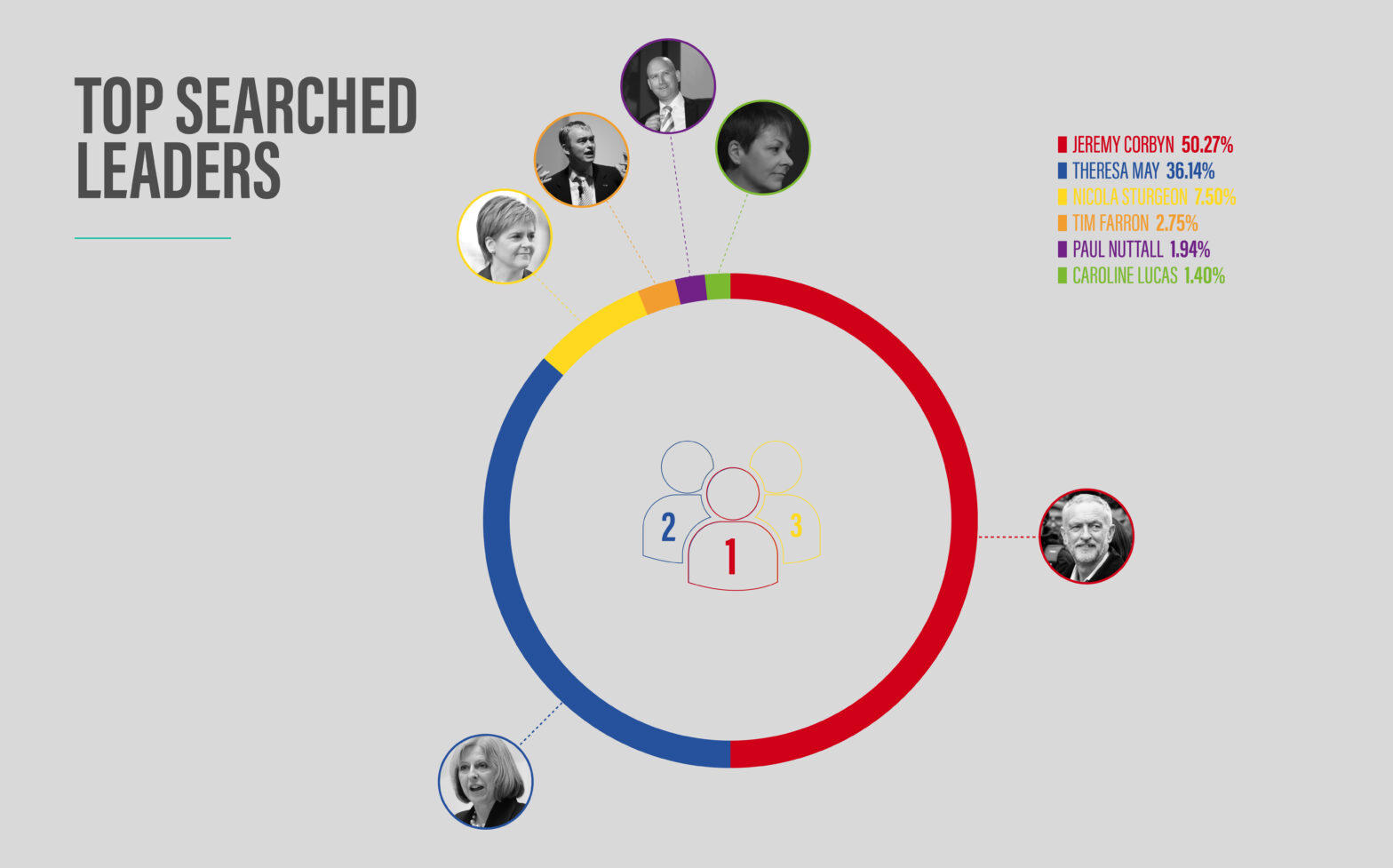The next general election was supposed to be in 2020, but Prime Minister Theresa May urged Parliament to vote to go to the polls again for a snap election tomorrow. In a statement last month announcing this decision, May said she wanted the early vote to prevent opposition parties from dividing the country over the government’s approach to the Brexit negotiations. “I am not prepared to let them endanger the work of millions of working people,” she said. “It weakens the government’s negotiating position.”
But how much does the voting public know about the issues most relevant to the Brexit negotiations? What about the parties and leaders standing for the elections? This is where data analytics comes in.
While pollsters have often gotten it wrong across the world — from predicting the outcomes of the US elections, to the EU referendum last year — Google has a massive data set that can give political pundits a run for their money, which begs the question: can SEO predict the outcomes of tomorrow’s snap election?
Although experts predicted a landslide win for Clinton, keyword search data for the US elections revealed that Trump outperformed Clinton consistently for the four months leading up to the November elections.

Using a data-led approach, analytics firm Alteryx, launched an election predictor app in October last year. The data set in question was from SurveyMonkey‘s election tracker, which drilled down voting preferences at a local level across all 50 states, considering age, education, income and ethnic demographics. Even so, this data-led approach couldn’t truly predict how the nation would vote.

Source: Alteryx.com
On our side of the Atlantic, new SEO-based data reveals that Labour’s Jeremy Corbyn was the most searched political leader online in the UK last week, accounting for 50.27 per cent of all searches in Britain.
Theresa May came in second with 36.14 per cent of searches. Captify, which analyses 33 billion searches a month, also reveals that over the month of May, Theresa May experienced the biggest decline in online searches of any political leader, with 94 per cent of these searches being negative. This was contrasted by 68.6 per cent of searches for Jeremy Corbyn being positive (versus 31.4 per cent negative).
Scottish National Party’s Nicola Sturgeon and the Liberal Democrats’ Tim Farron, follow the two frontrunners in search numbers.
Political parties and their issues
Since the election was announced in April, Captify also analysed online searches by the British public to reveal the top three political issues associated with five political parties in Britain.
The Conservatives were most associated with the issue of immigration, followed by the economy and education. Immigration was also the most searched for policy regarding The Green Party, followed by the economy and welfare. Labour was most associated with the issue of welfare, education and the economy. Education was the most searched for policy regarding The Liberal Democrats, followed by healthcare and immigration.
The SNP was most associated with the issue of Brexit, education and the economy. Brexit was the most searched for policy regarding UKIP, followed by immigration and healthcare.
Finally, Captify also measured which were the most researched political party manifestos since the election was called. It found that the public searched the most online for Labour’s manifesto (54 per cent of all searches), followed by The Conservatives (41 per cent ), and The Liberal Democrats (5 per cent).
Pollsters and predictions
But what does this mean in terms of predictions? Despite SEO rankings, the ongoing debate surrounding the general election predict that the Tories will win by a large margin. However, the poor performance of pollsters in the past have seriously damaged their credibility, says Greg Hanson, VP EMEA at data management firm Informatica.
“Election polling has hit an all-time low in public trust over the last year. Brexit and Trump famously outfoxed the pollsters, and the industry’s reputation is in tatters. With the snap general election coming up, polling companies are in last chance saloon – get it right or become irrelevant,” he says.
“Big data must be at the heart of their comeback strategy. Traditional polling methods must be updated to include a more holistic view of the electorate, collating data on everything from past voting habits to the impact of major calendar events on the result – even the latest weather forecasts. There’s more information available in 2017 than ever before with the omnipresence of smartphones and the rise of the IoT, feeding out data on household objects, cars, buying habits and more. Pollsters must ensure they have the right automated technology in place to process this information quickly and pick up trends that humans would miss.”
Fragmented data makes predicting outcomes impossible
Hanson puts more faith in marketers than pollsters at this point because of their in-depth understanding of human behaviour and their data-led strategy. “In the information age, it’s absurd that marketers can predict consumer behaviour more accurately than political polls. For the pollsters to catch up, they must invest in data, recruiting experienced practitioners and mapping out their data infrastructure to bring together all their actionable information in one place,” he adds. “Fragmented information is useless, so it’s essential to ensure that data is unified and available for analysis. A major overhaul is needed – polling companies must either make the most of big data or become extinct.”
See also: What effect does the snap election have on investors?







